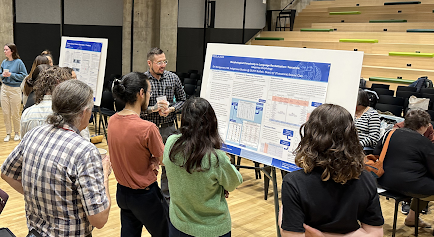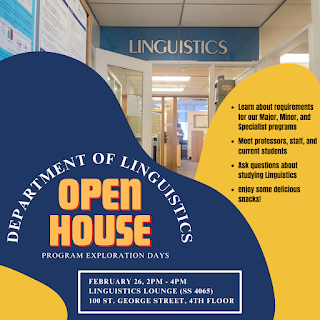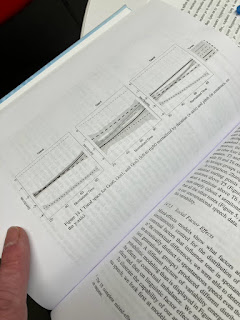Between April 26th and 28th, the University of Toronto’s Linguistics Department and the Centre for Indigenous Studies were proud to host WSCLA - the Workshop on Structure and Constituency in Languages of the Americas.
Dedicated to the “formal and theoretically-informed linguistic study of the Indigenous languages of North, Central, and South America,” the event included speakers from Montreal, Alberta, Buffalo, Minnesota, and even Copenhagen. Invited speakers from UofT included Oheróhskon Ryan DeCaire, Associate Professor, while panelists saw a presentation from Tahohtharátye Joe Brant, Assistant professor. Looking forward to WSCLA 2025!
 |
| Elder Eileen Antone giving the opening special session on Sunday, Iwith. |
 |
| Sunday Morning Poster session. |





















.jpg)
.jpg)
.jpg)
.jpg)

